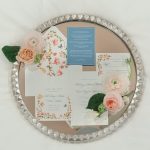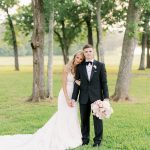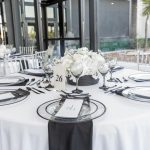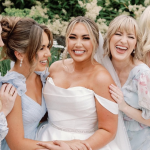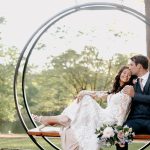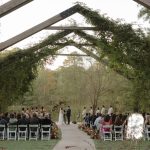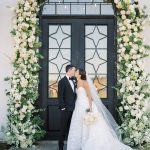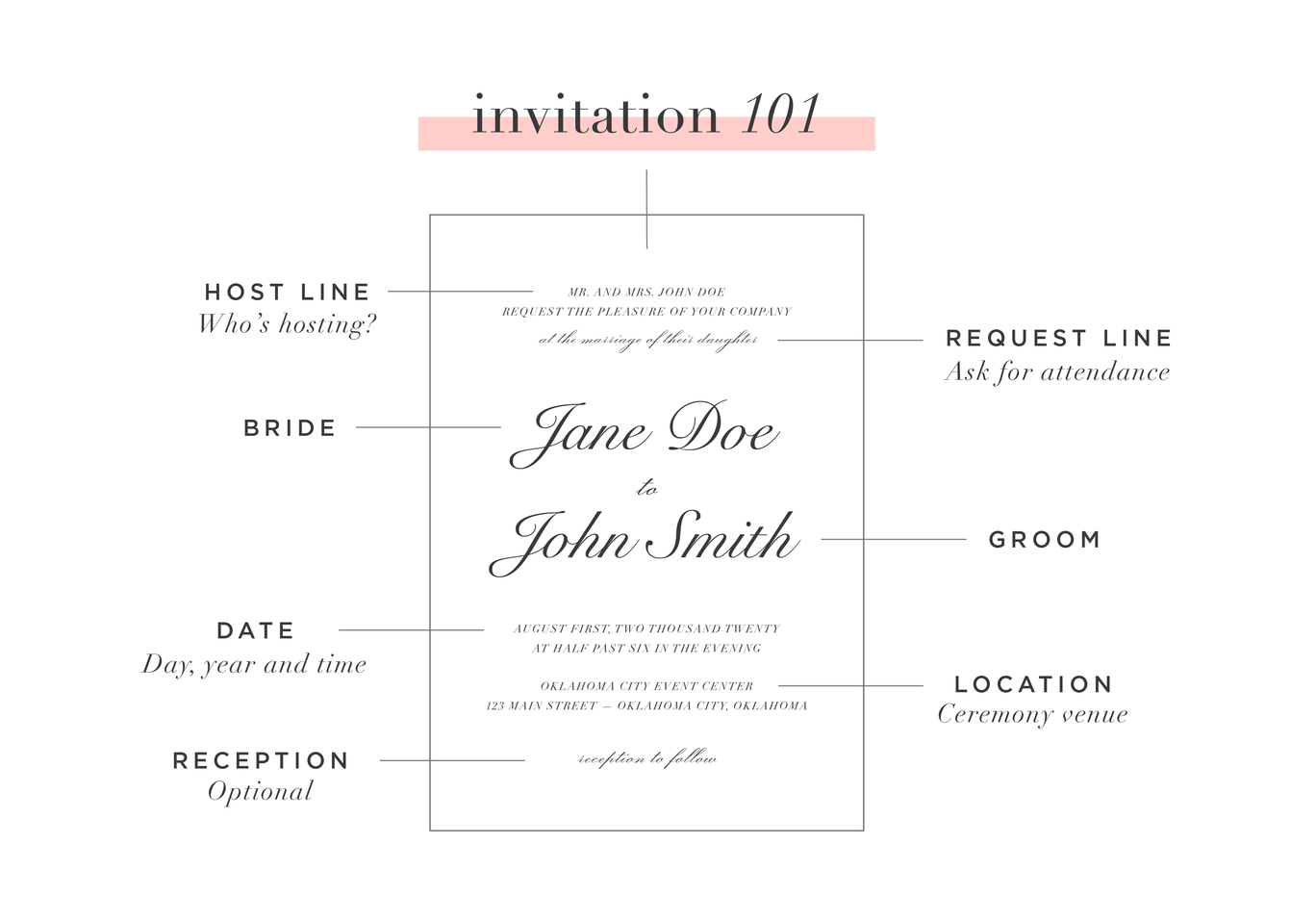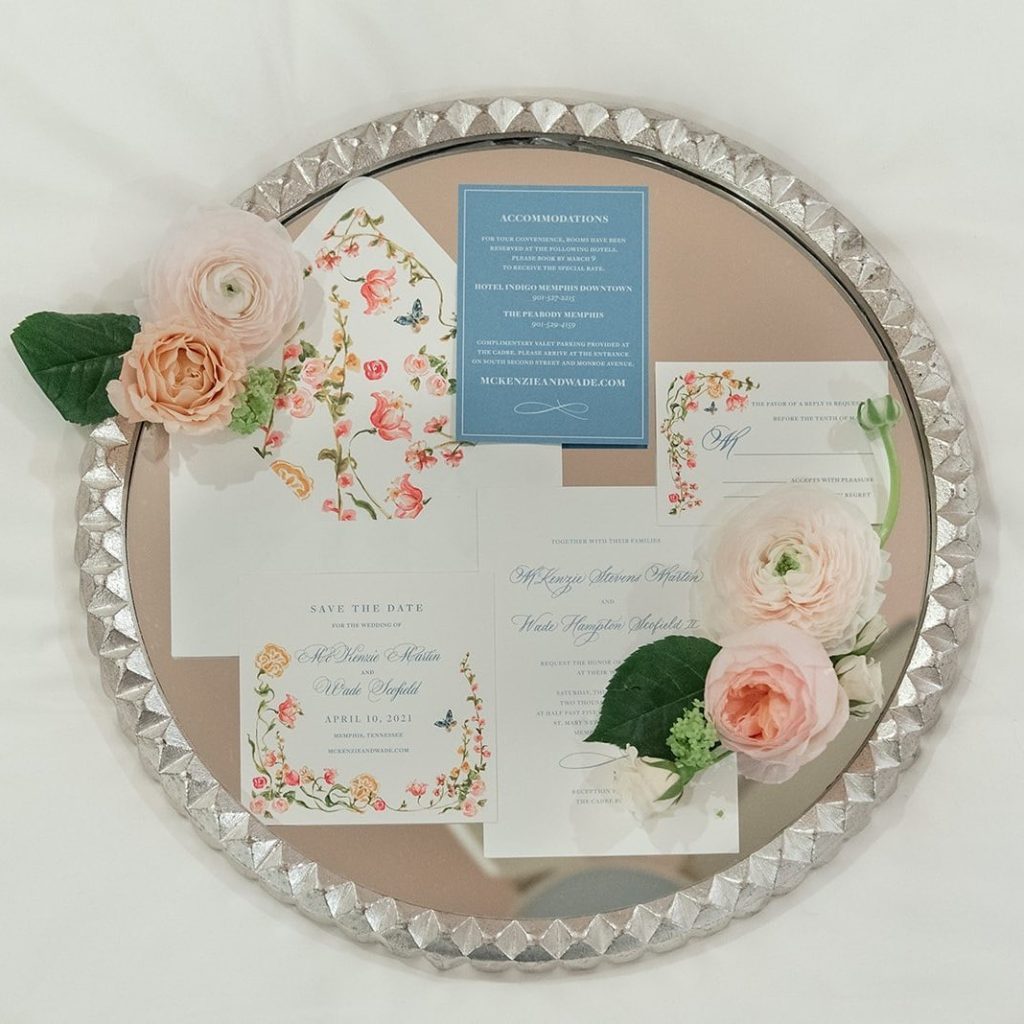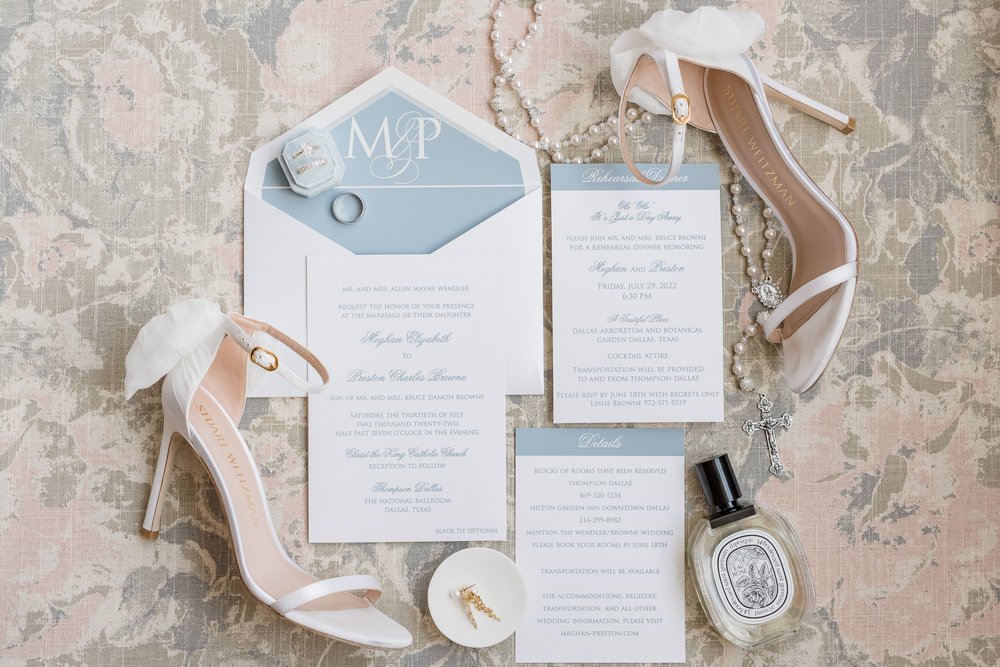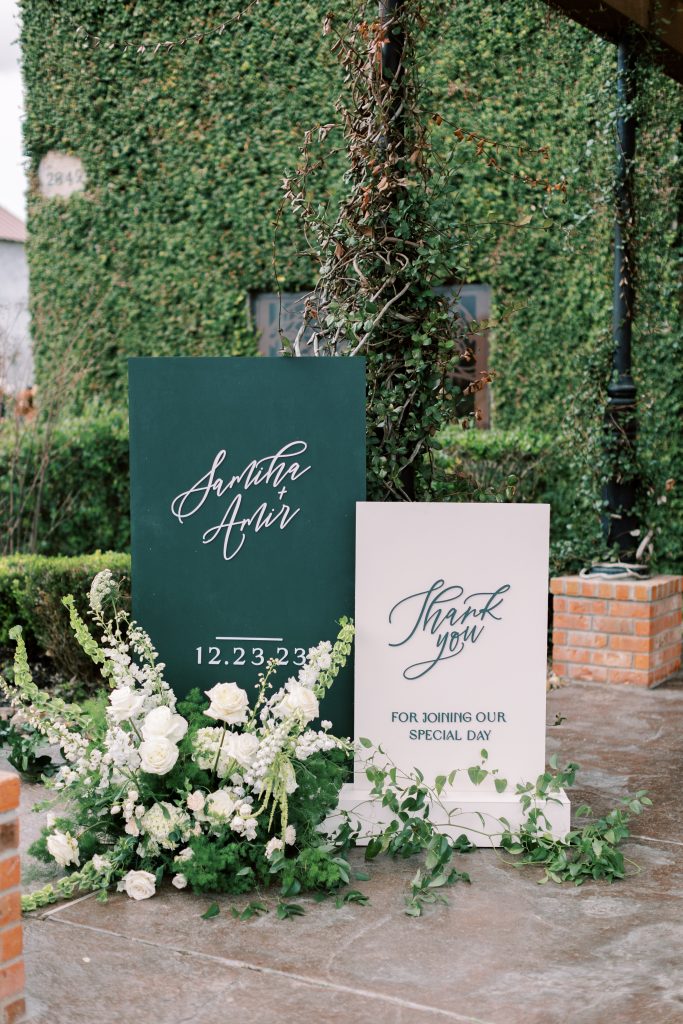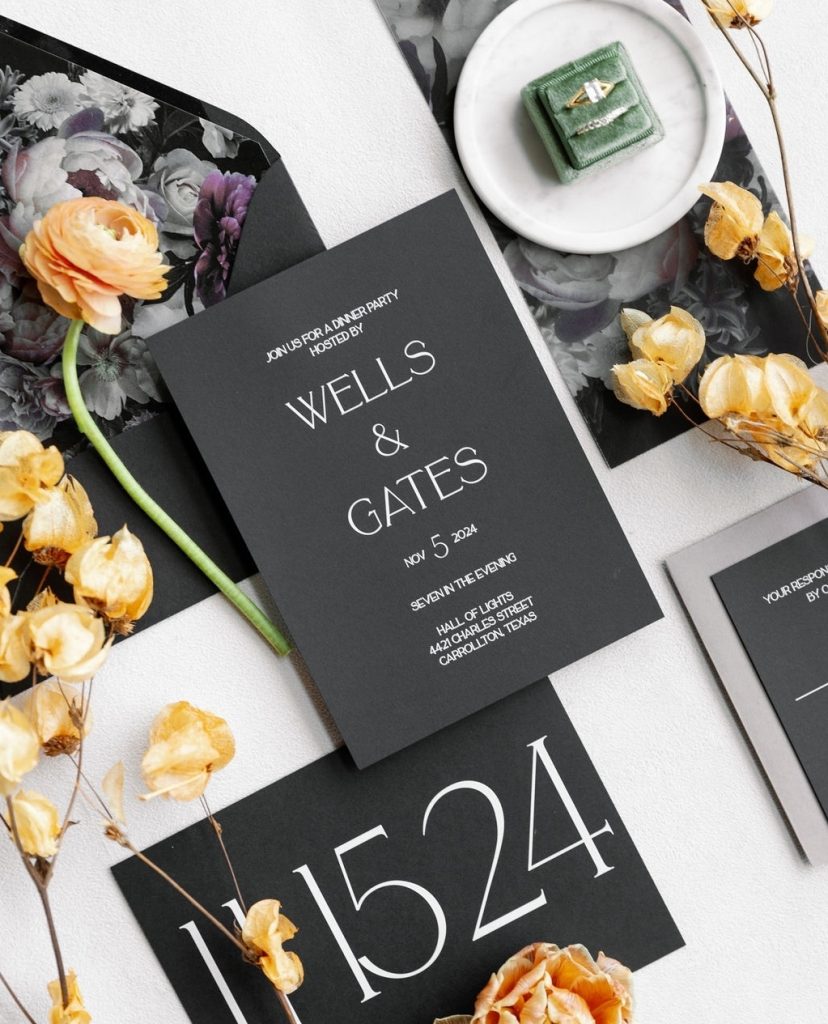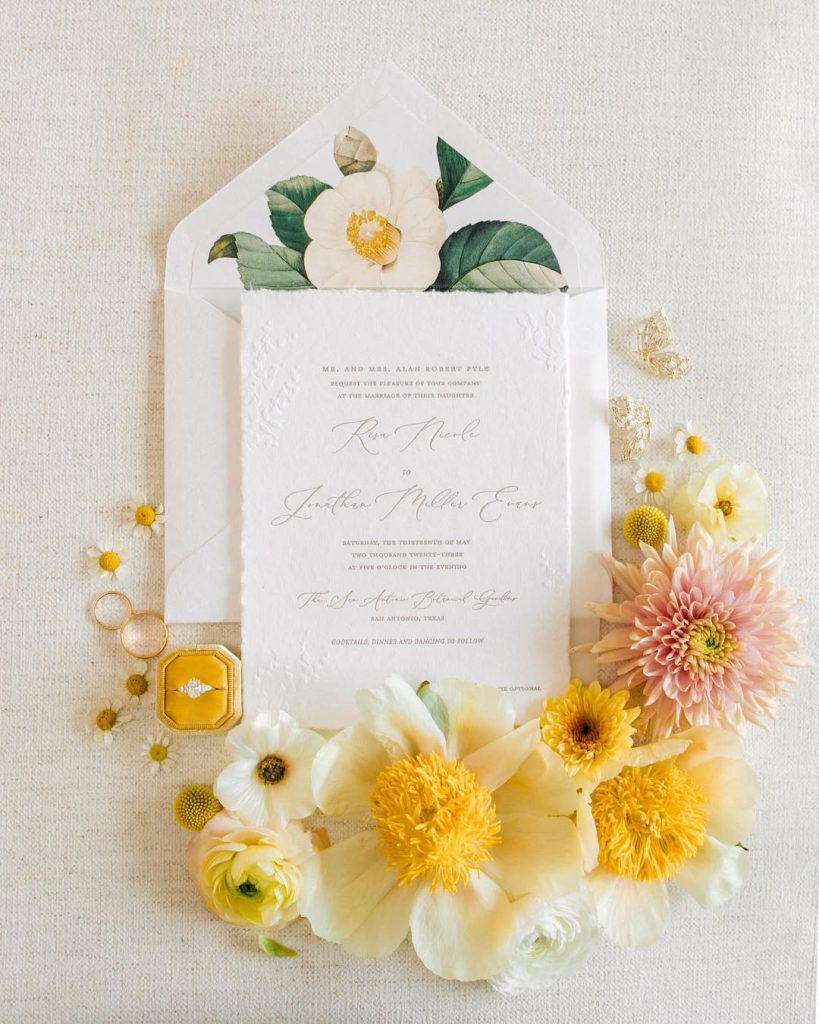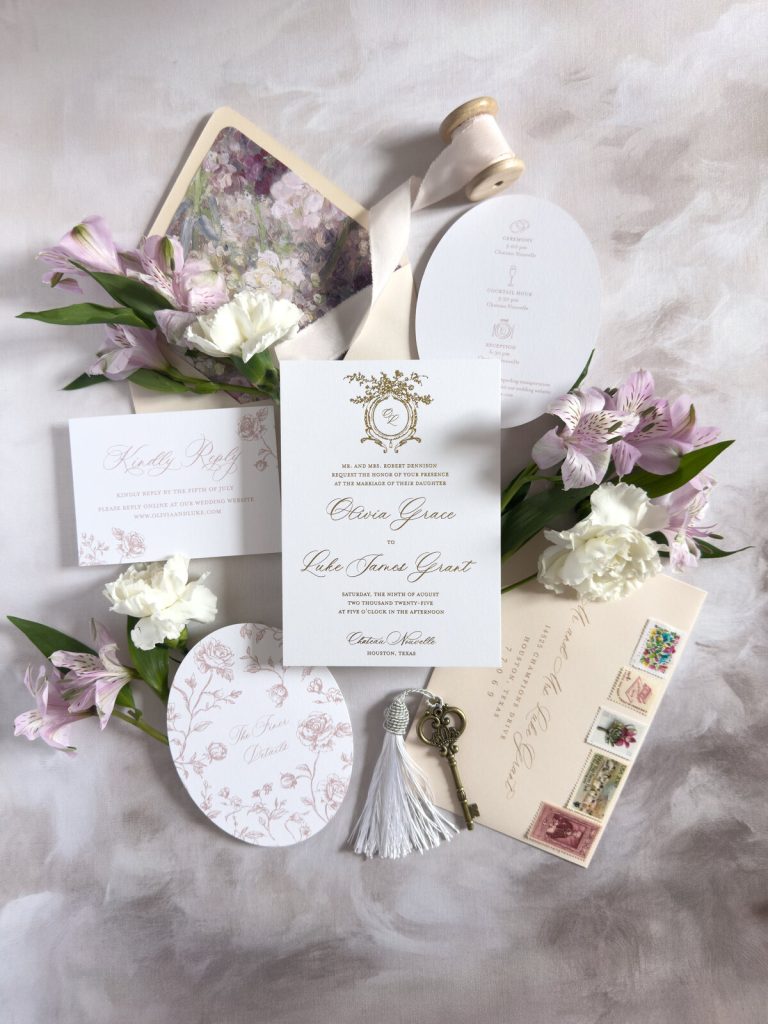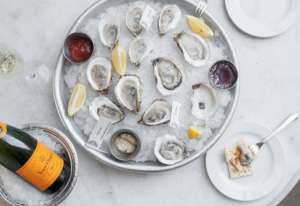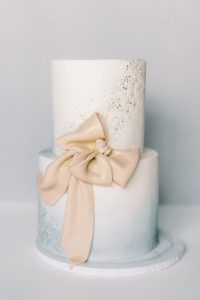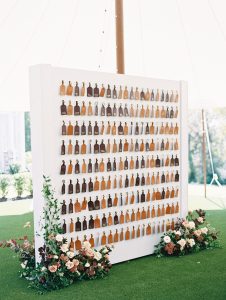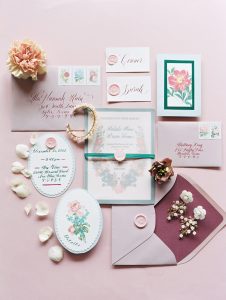Is there anything as beautiful as well-designed wedding invitations? It’s a perfect little preview of your special day that can whet the appetite of your guests and let them know what they can expect on the big day.
You’re planning the wedding of your dreams — now it’s time to talk about the wedding invitations. (Because you’re going to want someone there to witness this romantic celebration.) Nothing can trip engaged couples up quicker than invitation etiquette. When do we send save the dates? Do we list our registry? Should we use a calligrapher to address the envelopes? From timelines and etiquette to finding the perfect wedding stationers and calligraphers, we’ve got answers to all your wedding invitation questions right here!
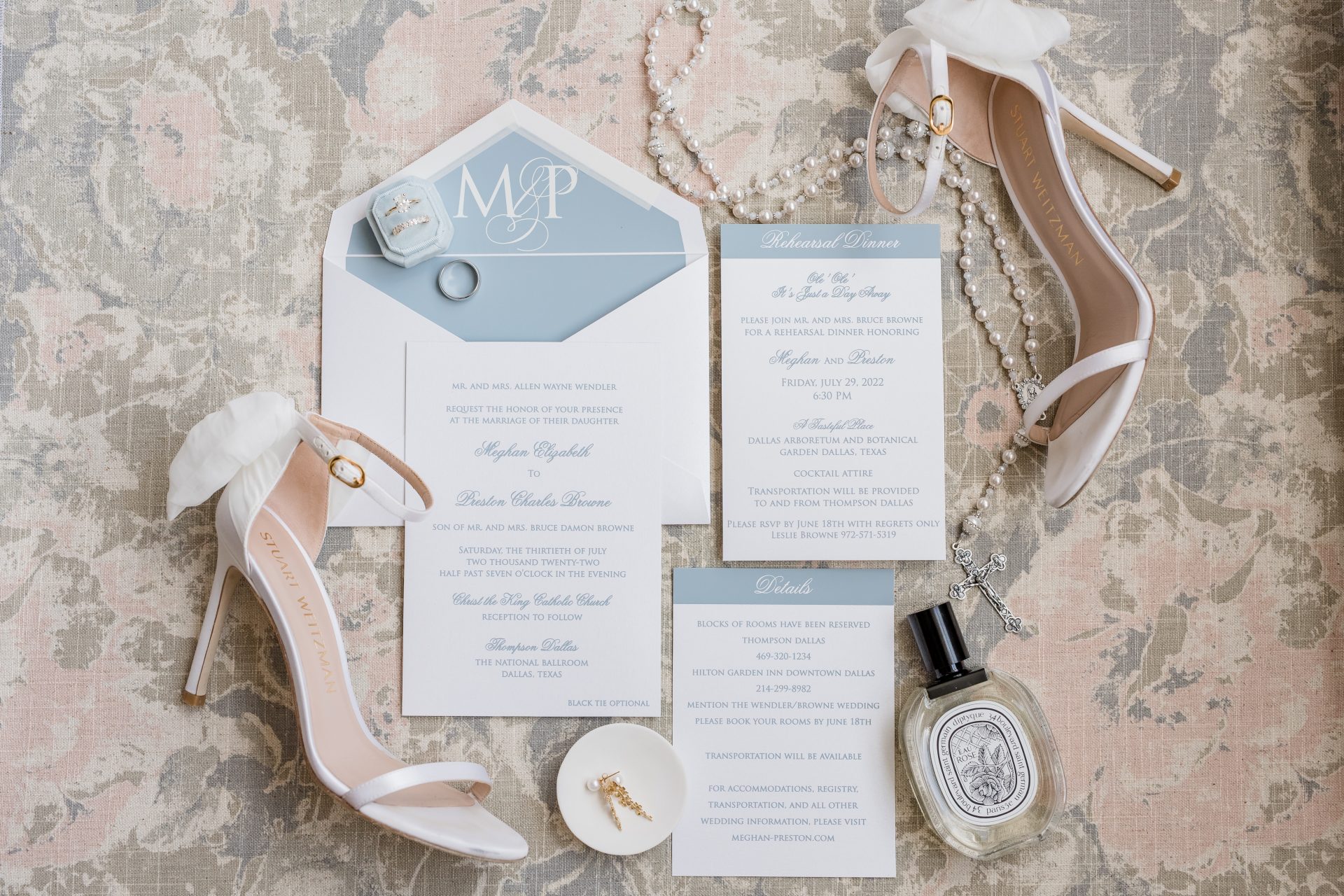
Photo // Emily Chappell Photography | Invitation Suite // DGZ Invitations and More
WEDDING INVITATIONS 101
Wedding invitations have come a long way. In the 1400s they were typically sent out by the town crier, and that meant everyone was invited. However, the nobility could afford invitations hand-crafted by monks skilled in the art of calligraphy. A few hundred years (and major technological inventions) later and every couple can send wedding invitations out like royalty. (You get hand-lettering and you get hand-lettering!) And thanks to the post office you can keep your guest list as limited as you want.
Let’s cover some basic terminology to keep you in-the-know as you start your wedding invitation journey.
Stationer: A person or store selling paper, pens, and other writing materials. This is a common term when referring to where to find your wedding stationery.
Wedding Invitation Designer: A graphic designer that will create a custom or semi-custom invitation set for your wedding.
Calligrapher: A person who uses special tools and ink to create ornamental writing in a range of fonts and styles. They can tackle any wedding project from addressing envelopes to custom signage.
Semi-Custom: This term refers to a design that has already been created and you have the option to add small custom touches such as color, personalization, and printing style.
Custom: This term refers to a fully-customized wedding invitation set including original design and print style.
Bespoke: This is similar to custom, with a focus on heirloom qualities.
Wedding Invitation Suite: This includes your save the dates, wedding invitations, detail card, RSVP, and can often include programs and more depending on where you purchase this.
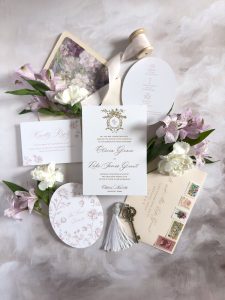
Invitation Suite & Photo // Courtesy of Kimberly Mullen Design
WEDDING INVITATION COMPONENTS AND TIMELINE
Save the Date
This is card includes the couple’s name, the wedding location, and the wedding date with the statement, “Formal invitation to follow.” In some cases, couples include their wedding website information, so guests can gather more details about accommodations, venue, and registry.
When to Order: 1-3 months ahead of sending them.
When to Send: (Destination) 8-12 months (Local) 4-10 months before the wedding date.
Average Cost: $150-$1,200+
Wedding Invitation
Today, etiquette is much more flexible on what content to include in an invitation. Traditionally you will include who is hosting, the couple’s name, the wedding date, time, venue name, location, dress code, and if reception is to follow.
When to Order: An average of 6 months ahead of sending them.
When to Send: (Destination) 3 months (Local) 6-8 weeks before the wedding date.
Average Cost: $400 -$2,500+
Note: This average cost range includes suites with and without the other elements listed below.
Response Card or RSVP
This can be a traditional card or postcard and is used to have the guests indicate their response to your invitation as well as marking any preferences for food and anything else you’ve asked them. Remember, it’s proper etiquette to pre-stamp these response cards for your guests.
When to Order: An average of 6 months ahead of sending them.
When to Send: This is sent with the invitation.
Deadline for Return: 2-3 weeks before the wedding date. Remember, you need this total to tell the final count to finalize the seating chart and give a headcount to the caterer. It’s perfectly okay to contact guests who haven’t RSVP’d by the deadline.
Enclosure or Details Card
This is where all the other information can be placed and is entirely up to the specifics of your event. For example, if you didn’t have save-the-dates, this is where you can put your wedding website information. It’s always worth noting here that it is never proper etiquette to list your registry on your wedding invitation suite. You can, however, add it to your wedding website. You can also put dress code information here if it didn’t fit on the invitation.
When to Order: An average of 6 months ahead of sending them.
When to Send: This is sent with the invitation.
Map and/or Direction Information Card
Depending on the type of venue or style of wedding, maps and directions are often best included as their own piece of the wedding invitation suite. Many couples opt for custom maps to add fun details about their hometown or destination wedding with tips on places to visit.
When to Order: An average of 6 months ahead of sending them.
When to send: This is sent with the invitation.
It is considered mandatory to include the invitation, directions, response card, and envelope as well as mailing envelope and postage.
Optional elements include reception cards, accommodations cards, or weekend schedule cards.
QUESTIONS ABOUT GETTING STARTED ON YOUR WEDDING INVITATION
When should I order my wedding invitations?
The answer varies depending on your specific event, but a good rule of thumb is 6 months ahead of your wedding date. A good window of time is 4-9 months, but try to stay within that window. Here’s why. This allows time to get on the vendor’s project list, it allows for any delays or mixups as well as allowing time to add the embellishments and calligraphy for addressing the envelopes. Essentially, most couples have more than one vendor touching their wedding invitations, so you want to give as much time as possible to give each vendor ample time to work on them and still get them mailed in time to your guests.
Try to order your wedding paper with the same company so you can get the benefit in pricing as well as project priority.
How do I choose my wedding invitation design?
It’s important to know your wedding style ahead of time. Will it be formal or casual? Will it be modern or boho? Next, you want to know your colors. This is where it is helpful to have your wedding planner selected first because they will help you create your color scheme and mood boards to use as a guide throughout the selection process. If you will be working with a local vendor on custom or semi-custom invitations, they will also be able to help you make this selection. A wedding invitation should be a preview of what guests can expect at your wedding celebration. That’s the best guide to keep in mind as you select your wedding invitations.
How do I choose a calligrapher for my wedding invitation envelopes?
First, you’ve made a great choice going with a calligrapher! Hand-lettered envelopes just add such a beautiful, personal touch and make such a beautiful keepsake. Second, we recommend going local to save time and make it all the more convenient for getting them the invitations to address. You can find local calligraphers on our vendor page here. Check out their Instagram and Facebook pages to see previous work and learn more about them. If you find a calligrapher you like, but want to see if they can do a unique style that you have in mind, create a little Pinterest board with samples that you can share with them.
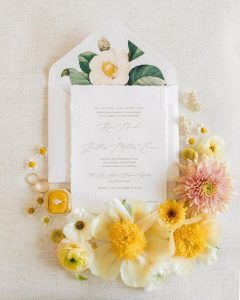
Invitation Suite & Photo // Courtesy of The Girl General
PRO-TIPS FOR ORDERING YOUR WEDDING INVITATIONS
- Have a pro address your envelopes. It’s more personal.
- Reduce your invitation count, by checking your list. Couples only need one invitation, families get one invitation, however, children who no longer live at home should get their own invitation.
- Be sure to add a stamp to any items you want to be returned such as the reply cards. (Double-check that you have the correct postage because it can change. It’s also good to check so that you don’t overpay. While you’re sending out a large envelope, the reply card is smaller and doesn’t need as much.)
- Always order extra invitations. A good rule of thumb between 15-25 just in case you need to resend an invitation, something goes wrong while addressing them, you forget someone, or just for a keepsake.
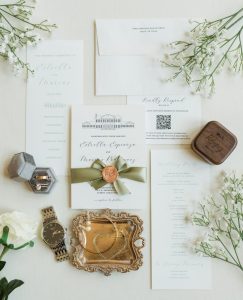
Invitation Suite & Photo // Courtesy of Lyons Paperie
You’re ready to find the wedding invitations of your dreams! Head to our local vendors’ page for wedding invitations and calligraphy to find the best of the best to make your dream wedding a reality.





